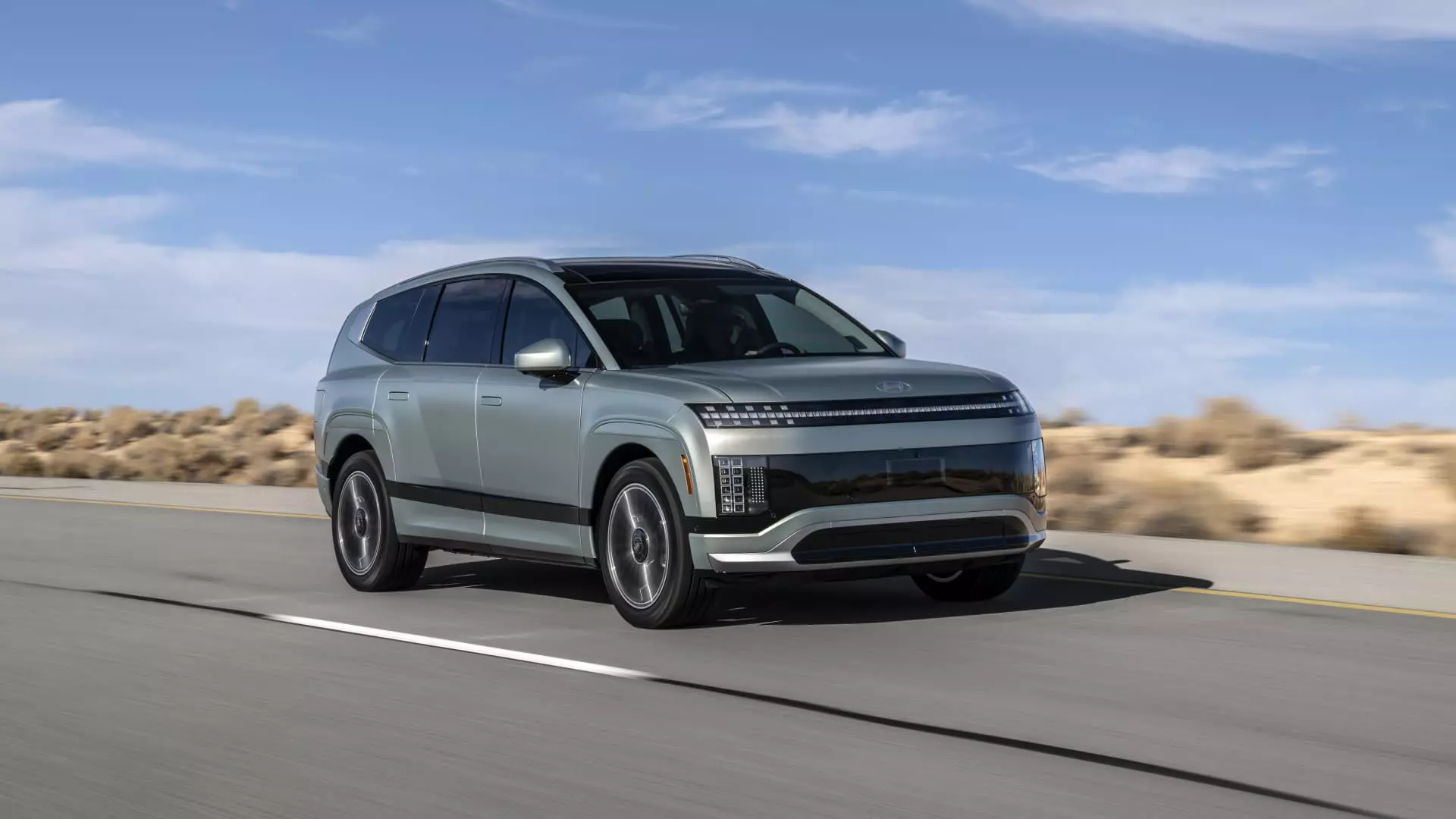Hyundai Motor has set its sights on amplifying its presence in the electric vehicle (EV) segment with the introduction of the 2026 Ioniq 9 SUV. As the company’s largest all-electric vehicle yet, this three-row SUV promises to cater to families and those seeking increased passenger capacity, with room for up to seven occupants. The Ioniq 9 enters the competitive market alongside Hyundai’s previous electric models, the Ioniq 5 and Ioniq 6, showcasing the company’s commitment to a diverse EV range.
The Ioniq 9 is engineered with several impressive specifications that may appeal to both eco-conscious consumers and performance enthusiasts. A key highlight is its rapid charging capability, which allows drivers to rejuvenate the battery from 10% to 80% in a mere 24 minutes. This feature stands out in a market where fast charging is increasingly important for consumers looking to minimize downtime during trips. Additionally, the estimated driving range of 335 miles on a single full charge positions the Ioniq 9 as a formidable contender for longer journeys. Acceleration remains a thrilling aspect, with the ability to reach 0 to 60 miles per hour in as little as 4.9 seconds, signaling that performance does not take a back seat in this electric offering.
Despite its promising attributes, Hyundai has been reticent about announcing a definitive pricing strategy for the Ioniq 9 leading up to its launch. This decision likely reflects ongoing evaluations of market conditions and competitor offerings, as well as the broader adoption rate of electric vehicles. As a reference point, Kia’s EV9, which shares a platform with the Ioniq 9, starts at approximately $55,000. Hyundai’s strategic approach could influence how potential buyers perceive value relative to competing models in the EV marketplace.
Even amidst fluctuating consumer interest and slower-than-anticipated EV adoption rates across the globe, Hyundai remains resolute in its commitment to rolling out a full range of electric vehicles. The company aims to introduce an extensive portfolio of 23 EV models by 2030, demonstrating a long-term vision amidst a shifting automotive landscape. Currently, Hyundai, alongside Kia, has secured a strong foothold in the U.S. EV market, positioned second only to Tesla in terms of volume sales.
The launch of the Ioniq 9 is anticipated not only for the U.S. market but also for South Korea, with subsequent expansions into Europe and beyond. This debut will coincide with the strategic establishment of a new factory in Georgia designated for EV production, highlighting Hyundai’s significant investment in electric vehicle manufacturing. As the automotive world gravitates towards sustainability, the arrival of the Ioniq 9 could represent a pivotal chapter in Hyundai’s journey, encouraging greater acceptance and integration of electric vehicles into mainstream automotive culture.

